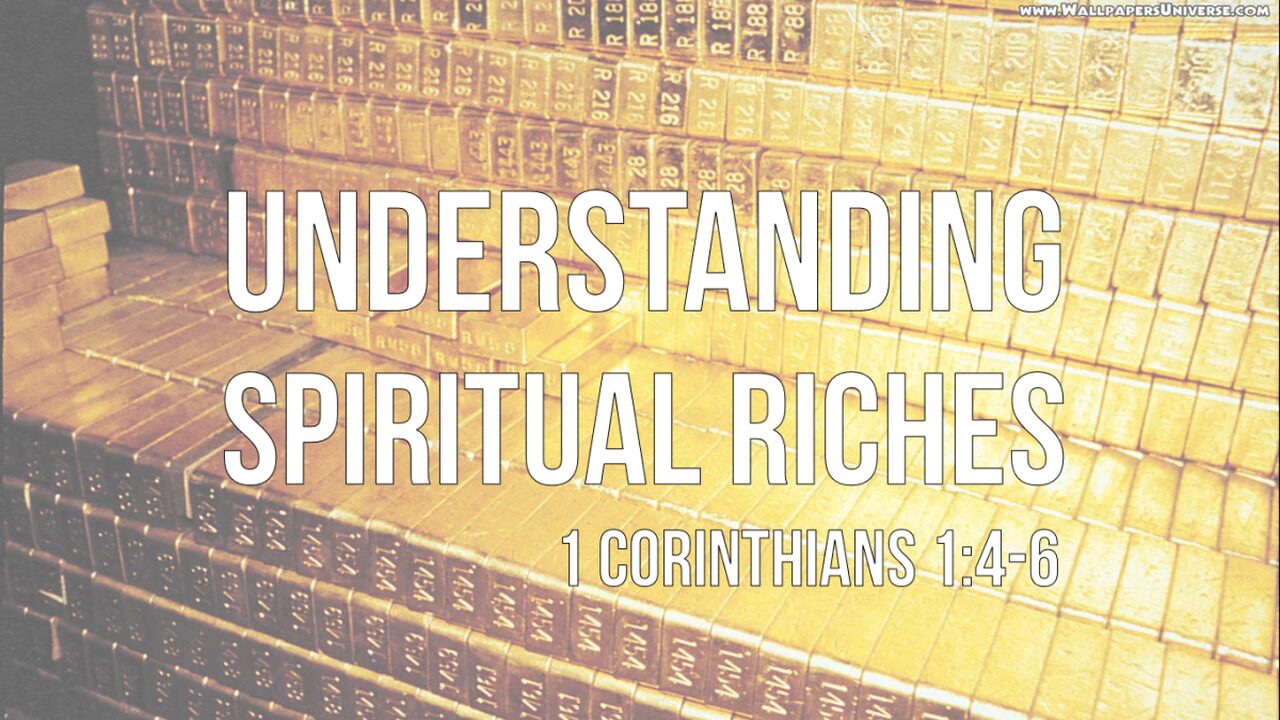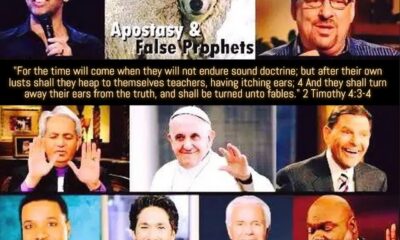Martin Bobgan, PhD.
So . . . what do you think Jesus would say to pop singer Madonna? While former reporter and atheist, now assistant pastor at Willow Creek Community Church Lee Strobel admits he’s “not pretending to have divine revelation from God on what Jesus would say,” his book title, What Jesus Would Say, gives the impression he has a pretty good idea about what Jesus would say. But, we have to wonder what Jesus he’s talking about, because his Jesus sounds more like a pop-psych-pastor than God the Son. Strobel’s Jesus identifies Madonna’s problem as a self-esteem issue. Self-esteem? That’s because it’s easier to get someone to come to church if you identify one’s problem as low self-esteem instead of sin. And, contrary to what so many pastors-turned-pop-psychologist like Strobel would have you believe, the Bible says: “This know also, that in the last days perilous times shall come. For men shall be lovers of their own selves. . .” (2 Timothy 3:1,2).
Promise Keepers also promote self-esteem and self-love. The following is from Promise Keepers Newsletter, Winter, 1993:
Many Christian single men have fought the battle to build their own self-worth, self-esteem, and self-love. They have learned that it is impossible to have a healthy relationship with others while having an unhealthy relationship with one’s self. Jesus recognized this when He challenged us to love our neighbor as we would love ourself (Mark 12:31).
In their eagerness to embrace psychological teachings of the world, Promise Keepers shift the thrust of the verse and make it sound as if we are commanded to love ourselves. But Jesus gave two commandments: to love God and to love neighbor. Loving self was not a commandment, but rather the manner in which to follow the second commandment. In other words, loving self is the natural human propensity. The very statement of Jesus is built on the fact that people already love themselves (see also Ephesians 5:28,29).
Christianity is about a loving relationship with the Lord and about loving one another. Christ did not teach his disciples to love themselves, but rather assumed that they already did when he said: “Thou shalt love the Lord thy God with all thy heart, and with all thy soul, and with all thy strength, and with all thy mind; and thy neighbour as thyself” (Luke 10:27). Just as we naturally care for ourselves and want what is good for ourselves, we are to care for others and want what is good for them.
An individual wrote to us and asked how Proverbs 19:8; Proverbs 8:35,36; and Proverbs 15:32 might relate to the idea that “we already love ourselves” and “don’t hate ourselves.”
Here is what we understand these verses to mean and how they do or do not relate to self-love and self-hatred. “He that getteth wisdom loveth his own soul: he that keepeth understanding shall find good” (Proverbs 19:8). While everyone already loves himself, not all people are wise. While they may love to indulge themselves in foolishness, they do not care for their soul, their spiritual life; therefore the encouragement is to get wisdom and keep understanding. An analogy might be that we must eat to live, but those who eat unwisely do not properly care for their bodies. This verse does not refute “we already love ourselves.” Proverbs 8:35 continues that same theme regarding wisdom: “For whoso findeth me findeth life, and shall obtain favour of the LORD.” These Proverbs offer two options:(1) finding God’s wisdom and thereby living a good or godly life, or (2) refusing God’s wisdom and losing the possibility for living a good life.
The next two verses speak warnings to those who choose option 2. “But he that sinneth against me wrongeth his own soul: all they that hate me love death” (Proverbs 8:36). Those of whom the verse speaks love themselves more than they love God, but in the long run they will destroy themselves. It is not that they actively “love death” or that they hate themselves.
It is that the arrogant self-indulgence of hating God and going one’s own way is spiritual death. The same is true for Proverbs 15:32, “He that refuseth instruction despiseth his own soul: but he that heareth reproof getteth understanding.” It is not active self-hatred here but rather a warning that one’s soul is in jeopardy if one refuses the Lord’s instruction. The contrast is that those who “heareth reproof getteth understanding.”
The following is from our book Prophets of PsychoHeresy II regarding self-hatred:
- Now we are not saying that there are no individuals who genuinely think that they hate themselves. However, what they generally hate is something about themselves or their circumstances. They exhibit actual love for themselves in that they continue to spend most of their time concerned about themselves, even if it is with unhappy thoughts. They generally get to the point where they are unhappy about themselves because a discrepancy exists between their aspirations or desires and their performance or condition. This intensive hate is evidence of high self-interest.
The problem is always the self-focus with people who think they hate themselves or think they need to love themselves more.
In his book Life in the Spirit, Martyn Lloyd-Jones says:
- The real cause of failure,ultimately, in marriage is always self and the various manifestations of self. Of course that is the cause of trouble everywhere and in every realm. Self and selfishness are the greatest disrupting forces in the world. All the major problems confronting the world, whether you look at the matter from the standpoint of nations and statesmen, or from the standpoint of industry and social conditions, or from any other standpoint—all these troubles ultimately come back to self, to ‘my rights,’ to ‘what I want,’ and to ‘who is he?’ or ‘who is she?’ Self, with its horrid manifestations, always leads to trouble, because if two ‘selfs’ come into opposition there is bound to be a clash. Self always wants everything for it-self. That is true of my self, but it is equally true of your self. You at once have two autonomous powers, each deriving from self, and a clash is inevitable. Such clashes occur at every level, from two people right up to great communities and empires and nations.
Self-esteem teachings distort the Bible, reflect the world, and appeal to the natural man. The Bible teaches believers to esteem others better than self, to love one another as we already love ourselves, and to deny self daily.
(From PAL V3N2)
CALL and get on the FREE PsychoHeresy Awareness Newsletter, it’s great: 1-800-216-4696
PsychoHeresy Awareness Ministries, 4137 Primavera Road, Santa Barbara, CA 93110
http://psychoheresy-aware.org
LET’S LEARN GOD’S WORD TOGETHER – ONE TRUTH AT A TIME: This message was sent out to each person who is on the Moments with My Master e-mail devotional list. In supplementation to your personal daily study of God’s Word, we would love to add you and have the privilege of nourishing your heart with God’s Word (Jn. 5:39; 1 Tim. 4:6, 16; Heb. 5:11-14; 1 Pet. 2:2). Sign up for free email devotional HERE… The Moments with My Master email devotional is sent out for the edification of the body of Christ.
Articles
Rich in Faith [podcast]

“Them that Love Him”
——WHAT one temporarily has in this fleeting world or doesn’t have, has NOTHING to do with that person’s spiritual state. This is what Jesus taught: “Take heed, and beware of covetousness: for a man’s life consisteth not in the abundance of the things which he possesseth.” (Luke 12:15) In fact James says:
“HEARKEN, MY BELOVED BRETHREN, HATH NOT GOD CHOSEN THE POOR OF THIS WORLD RICH IN FAITH, AND HEIRS OF THE KINGDOM WHICH HE HATH PROMISED TO THEM THAT LOVE HIM?” JAMES 2:5
James says God chooses those for His eternal kingdom “that love him,” namely “the poor of this world.” We are justified by “faith” and not by what we do or do not temporarily possess in this fleeting life.
IF in your mind you rate people by what they have or don’t have in this fleeting sinful world, you are deeply deceived and in utter need of repentance and the washing of water by the Word of God. You are carnally minded (Romans 8:5-6).
Regrettably, it seems that most people professing to be following Christ, the One who gave all, are not the least bit concerned if their brother or sister has a need. God have mercy upon us and grant us repentance in Jesus’ Name! Are these people truly saved?
“Hereby perceive we the love of God, because he laid down his life for us: and we ought to lay down our lives for the brethren. 17 But whoso hath this world’s good, and seeth his brother have need, and shutteth up his bowels of compassion from him, how dwelleth the love of God in him? 18 My little children, let us not love in word, neither in tongue; but in deed and in truth. 19 And hereby we know that we are of the truth, and shall assure our hearts before him.” 1 John 3:16-19
“If we are in Jesus we have the unsearchable riches of Christ (Ephesians 3:8). Unfathomable (in our small minds), infinite wealth and spiritual blessings! Endless mercy, grace, and forgiveness. That is inexhaustible! Why do we need any worldly riches that will rot and corrupt our hearts!? Lay up in your hearts God’s riches! Which are eternal!” Karen Cochran
Some have tens of thousands in the bank and could care less to find out if a sister or brother has a need. The Bible assures us that they are not saved. If you have even a little to give and don’t, it’s because you simply have chosen not to know and abide in Christ.
“What doth it profit, my brethren, though a man say he hath faith, and have not works? can faith save him? 15 If a brother or sister be naked, and destitute of daily food, 16 And one of you say unto them, Depart in peace, be ye warmed and filled; notwithstanding ye give them not those things which are needful to the body; what doth it profit? 17 Even so faith, if it hath not works, is dead, being alone.” James 2:14-17
The financial institutions and their salesmen are vying for your money. They want your money to invest so that you and they earn a financial gain in this life. Christians in need, orphans, and Gospel workers are also available to invest in. To help them is to invest in the LORD’s kingdom and be repaid dividends for eternity. Oh, and your heart will follow where you choose to place your money. Jesus says “Lay not up for yourselves treasures upon earth, where moth and rust doth corrupt, and where thieves break through and steal: 20 But lay up for yourselves treasures in heaven, where neither moth nor rust doth corrupt, and where thieves do not break through nor steal: 21 For where your treasure is, there will your heart be also.” (Matthew 6:19-21)
PRAYER: Holy Father, please break me and make me Your authentic follower. Jesus I love You. Let me walk as You walked, live as You lived, love as You love. Bless this life You gave to be truly crucified with You – dead, buried, and raised up – a vessel of honor for Your glory! In Jesus’ name.
Let’s Grow Together! Sign up here to begin receiving the Moments with Our Master email devotional that is sure to help you grow in His grace and in the knowledge of our LORD and Savior Jesus Christ (2 Pet. 1:2; 3:18). It’s sent out for the edification of the body of Christ. Sign Up HERE.
Support | STORE | Podcasts | Jail/Prison Ministry | Mexico Mission here | All Ministry Updates | More on Assurance here | Because You Care Page | The Greatest of these is Charity | Be Ready in the Morning [podcast] | The Sure Mercies of David [podcast] | That Repentance and Remission of Sins should be Preached [podcast] | At His Feet | Knowing God | The Cross Life | 100’s of Christ-centered Scripture-rich Podcasts | Christology = the Study of Christ


Abiding
Safety in Wise Counsel [podcast]

“Every purpose is established by counsel: and with good advice make war.” Proverbs 20:18
“The steps of a good man are ordered by the Lord: and he delighteth in his way.” Psalms 37:23
“So teach us to number our days, that we may apply our hearts unto wisdom.” Psalms 90:12
“Safety” in wise counsel from God’s wisdom, Word, and including at times with the help of His beloved saints.
“Where no counsel is, the people fall: but in the multitude of counsellors there is safety.” Proverbs 11:14
“The horse is prepared against the day of battle: but safety is of the LORD.” Proverbs 21:31
“For by wise counsel thou shalt make thy war: and in multitude of counsellors there is safety.” Proverbs 24:6
Caprice means a sudden and unaccountable change of mood or behavior.
“Who is a wise man and endued with knowledge among you? let him shew out of a good conversation his works with meekness of wisdom. 14 But if ye have bitter envying and strife in your hearts, glory not, and lie not against the truth. 15 This wisdom descendeth not from above, but is earthly, sensual, devilish. 16 For where envying and strife is, there is confusion and every evil work. 17 But the wisdom that is from above is first pure, then peaceable, gentle, and easy to be intreated, full of mercy and good fruits, without partiality, and without hypocrisy. 18 And the fruit of righteousness is sown in peace of them that make peace.” James 3:13-18
Support | STORE | Podcasts | Jail/Prison Ministry | Mexico Mission here | All Ministry Updates | 100’s of Christ-centered Podcasts | Bible Books Narrated | Bible Study Helps | The Book of James Narrated [podcast] | The Book of Revelation Narrated [podcast] | Colossians Overview [podcast]


Articles
“Let Brotherly Love Continue” [podcast]

“Let Brotherly Love Continue.” Hebrews 13:1
“And walk in love, as Christ also hath loved us, and hath given himself for us an offering and a sacrifice to God for a sweetsmelling savour.” Ephesians 5:2
1 John 4
God Is Love
“7 Beloved, let us love one another: for love is of God; and every one that loveth is born of God, and knoweth God.
8 He that loveth not knoweth not God; for God is love.
9 In this was manifested the love of God toward us, because that God sent his only begotten Son into the world, that we might live through him.
10 Herein is love, not that we loved God, but that he loved us, and sent his Son to be the propitiation for our sins.
11 Beloved, if God so loved us, we ought also to love one another.
12 No man hath seen God at any time. If we love one another, God dwelleth in us, and his love is perfected in us.
13 Hereby know we that we dwell in him, and he in us, because he hath given us of his Spirit.
14 And we have seen and do testify that the Father sent the Son to be the Saviour of the world.
15 Whosoever shall confess that Jesus is the Son of God, God dwelleth in him, and he in God.
16 And we have known and believed the love that God hath to us. God is love; and he that dwelleth in love dwelleth in God, and God in him.
17 Herein is our love made perfect, that we may have boldness in the day of judgment: because as he is, so are we in this world.
18 There is no fear in love; but perfect love casteth out fear: because fear hath torment. He that feareth is not made perfect in love.
19 We love him, because he first loved us.
20 If a man say, I love God, and hateth his brother, he is a liar: for he that loveth not his brother whom he hath seen, how can he love God whom he hath not seen?
21 And this commandment have we from him, That he who loveth God love his brother also.”
1 Corinthians 13
“Though I speak with the tongues of men and of angels, and have not charity, I am become as sounding brass, or a tinkling cymbal. 2 And though I have the gift of prophecy, and understand all mysteries, and all knowledge; and though I have all faith, so that I could remove mountains, and have not charity, I am nothing. 3 And though I bestow all my goods to feed the poor, and though I give my body to be burned, and have not charity, it profiteth me nothing. 4 Charity suffereth long, and is kind; charity envieth not; charity vaunteth not itself, is not puffed up, 5 Doth not behave itself unseemly, seeketh not her own, is not easily provoked, thinketh no evil; 6 Rejoiceth not in iniquity, but rejoiceth in the truth; 7 Beareth all things, believeth all things, hopeth all things, endureth all things. 8 Charity never faileth: but whether there be prophecies, they shall fail; whether there be tongues, they shall cease; whether there be knowledge, it shall vanish away.”
Support | STORE | Podcasts | Jail/Prison Ministry | Mexico Mission here | All Ministry Updates | Because You Care Page | The Greatest of these is Charity | Be Ready in the Morning [podcast] | The Sure Mercies of David [podcast] | That Repentance and Remission of Sins should be Preached [podcast] | At His Feet | Prepared to be Used of God | Walking with Jesus on His Stated Terms – the Cross | Fasting and Prayer | The Old Man Must be Put Down [podcast] | The 5 Sins That Keep God’s People Out of Their Promised Land [podcast] | What Did Paul Mean by “I Keep Under My Body”? [podcast] | “Jesus the Author and Finisher of our Faith” [podcast] | A Living Sacrifice unto God [podcast] | Departing from Hell Beneath | Prayer



 America12 months ago
America12 months agoThe Drugging of America: The Pharmakeia Sorcery Deception [podcast]

 Articles2 years ago
Articles2 years agoChildren being Rescued in Tunnels: Happening Now – UPDATE!

 Articles8 years ago
Articles8 years agoSelf-Examination in Preparation for the Lord’s Return

 Apostasy2 years ago
Apostasy2 years agoSHOCKING List of False Prophets Most Believe are True












































